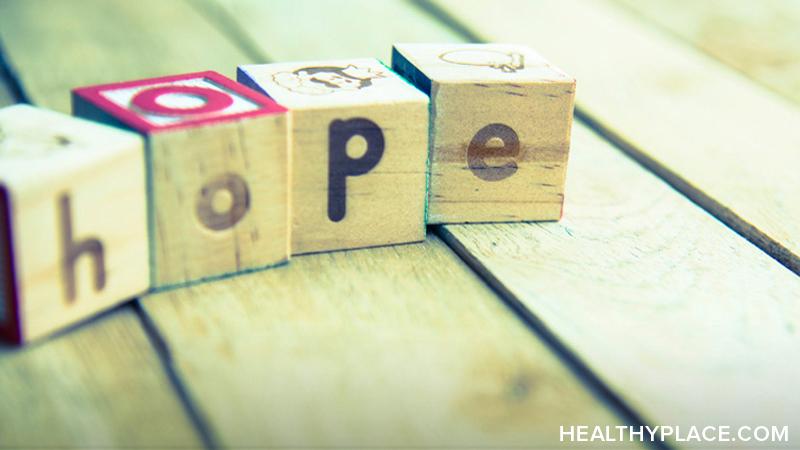BPD and Age: The Therapy of Time

Did you know that the most helpful treatment for borderline personality disorder (BPD) is age? According to a 16-year-long study, 88 percent of patients no longer met the Diagnostic and Statistical Manual of Mental Disorders criteria for BPD after eight years, while 99 percent remitted after 16 years.1 I just turned 30 myself, and my BPD symptoms have greatly improved over the past 12 years. This is my experience with BPD since becoming an adult.
My Experience with BPD Age 18-25
I sometimes describe myself in my early adult years as a raging borderline. I was explosive and defensive and in love with falling in love. One moment I needed my partner, or I’d die, and the next, I detested them. I cycled through partners, friends, and states, eventually moving countries. I was incredibly unfulfilled and didn’t understand why the world despised me so fiercely.
No one could control me, and I was proud of that. I would intentionally seek out dangerous situations because they were entertaining.
To name just a few of my typical thrills:
- Hyper-promiscuous, unsafe sexual encounters
- Purposeful addiction to substances such as nicotine
- Pushing my body to the limit with alcohol, pills, hallucinogens, and other substances
My Experience with BPD Age 25-30
As I aged into my mid-20s, I did start to calm down a bit. It’s hard to know whether it was due to my environment, age, or perhaps a combination of both. By the time I was 25, I had moved to Denmark and started college. I still partied hard when I could and struggled with maintaining relationships. Still, university offered me the opportunity to throw myself into something.
I lead a double life in college. On the one hand, my educational career was exceptional, but everything else in my life was dysfunctional. I volunteered in a social development project and put on female political empowerment workshops in a refugee camp in the Sahara Desert. But at the same time, I was homeless and ate nothing but oats and water in an attempt to afford tuition.
As I aged out of university and into my late 20s, my BPD symptoms began improving. I was burned out and suffered from major depression; however, I became interested in who I was and put effort into being authentic rather than mirroring others. I also stopped partying, maintained longer friendships, and became less reactive and defensive.
Though my symptoms were improving, I still experienced severe suicidal ideation. Finally, as I entered my late 20s, I resolved to get the mental health help I needed.
My Experience with BPD at Age 30
I count myself incredibly lucky that I never caught a sexually transmitted infection, went to jail, overdosed, or died by suicide. I’m not sure if it was the people, the country, or my age, but I stand here today at 30 to report that it really did get increasingly better—even if the process was mind-numbingly slow.
How have your BPD symptoms changed over time? Let me know in the comments.
Source
- Zanarini, M. C., Frankenburg, F. R., Reich, D. B., & Fitzmaurice, G. (2012). Attainment and Stability of Sustained Symptomatic Remission and Recovery Among Patients With Borderline Personality Disorder and Axis II Comparison Subjects: A 16-Year Prospective Follow-Up Study. American Journal of Psychiatry, 169(5), 476–483. https://doi.org/10.1176/appi.ajp.2011.11101550
APA Reference
Brown, D.
(2022, November 16). BPD and Age: The Therapy of Time, HealthyPlace. Retrieved
on 2026, March 3 from https://www.healthyplace.com/blogs/borderline/2022/11/bpd-and-age-the-therapy-of-time
Author: Desiree Brown
My Experience with BPD at 64, I am Mrs Havisham from Dickens Great Expectations. Sexually abused, abandoned and betrayed, my emotional clock stopped at 13. I live a solitary life because I didn’t want to hurt others anymore, including myself.
I am a mental health therapist that has been recently diagnosed - I’m literally shaking writing this. My psychiatrist reminded me a label doesn’t change who I am. I uncovered this diagnosis through my own reading on trauma- after an 8 year benzo prescription addiction I woke up, the feelings poured in and very rapidly I began to deteriorate. I am on the mend, but only recently have uncovered this diagnosis that I have avoided identifying with for years. Talked to psychiatrist who I have been meeting with weekly since “the mental breakdown” . Holding on by a thread.
Well I'm 45 and an alcoholic. I truly believe drinking is self-harm and self sabotage/self destruction for BPDers. I'm all of 10 days sober right now and struggling but hopeful. I hope it goes away or the symptoms get better but I didn't get diagnosed until my 30s and so I had to look back and think, "that explains it!" lol
